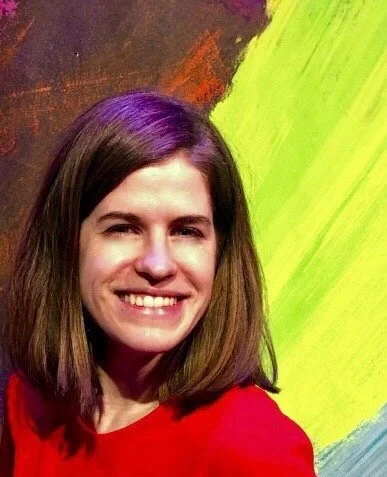Through collaboration with The Creative Process, I am exploring how writers and filmmakers specifically create, asking what artists and artistic and academic institutions in general believe about the impact and purpose of their creations, and learning how to engage individuals in deeper, more meaningful conversations with the ideas and art that drive our world.
Before beginning to collaborate with The Creative Process, I was struck by how the specificity of the questions inspired answers that spoke to the creative process and creative power on a more universal scale. In other words, I noticed how deep engagement with the art or work itself revealed greater truth than more general questions might. I am very interested in such conversations and also learning how to craft these kinds of questions. Similarly, in reading about how TCP tailors the exhibition to each community and region and encourages creative responses and educational initiatives in each location, I realized there might be an opportunity for me to observe and support the call-and-response between art and individuals and institutions.
I have had experiences that have peaked my interest in how to inspire meaningful conversation with important thinkers like Dr. Alan Greenspan; how to connect individuals to the treasures of cultural institutions like the Folger Shakespeare Library; and, ultimately, why engagement with the humanities matters, as someone who has always engaged with the arts. In collaborating with The Creative Process, however, I am weaving these separate, but related threads into a greater tapestry of understanding.
Recent Projects & Plans for the Future
I supported the writing and publication of the former Chair of the Federal Reserve Dr. Alan Greenspan and Economist editor and columnist Dr. Adrian Wooldridge’s book, Capitalism in America, from its inception in 2015 through its publication on October 16, 2018. This support included historical research, editorial assistance, and a variety of logistical and practical responsibilities that required me to liaison with the publishing team, the press, and various educational and cultural institutions. This experience, coupled with work I did as an undergraduate that focused on the relationship between narrative and ideological power, deepened my fascination with the role storytelling plays in defining our world; in shaping the political and societal beliefs that, in turn, inspire real-world action.
I was a member of the team that launched the Folger Shakespeare Library’s Wonder of Will Campaign, which, through an innovative building project, seeks to protect and enhance the public’s ability to access the library’s unparalleled collection and, therefore, engage with Shakespeare and his world in the present day. As the assistant in the Executive Offices, I helped translate the overarching vision for the campaign into the smaller scale, concrete details that needed attention prior to and in the months after our official launch at our 2019 Gala. This work exposed me to the importance of crafting a tangible and tactile experience of the humanities and consequently made me intensely curious about how this is done not only for Shakespeare and the early modern world, but also for art in all its forms.
For the past three years, I have served as a screener/reviewer for the DC Shorts International Film Festival. In this capacity, I have had the opportunity to watch, review, and recommend short films and screenplays created by filmmakers from all over the world, which has at once disrupted and reinforced my understanding of what defines compelling storytelling and has demonstrated the importance of engaging with diverse voices. Some of the works I recommended received wider critical acclaim and distribution (i.e., Period. End of Sentence, a short documentary about the impact a sanitary pad machine has on a community of Indian women, won the Oscar for Best Documentary Short Subject at the 91st Academy Awards and is now available on Netflix), while others I recommended were not selected for our festival and nonetheless remain imprinted upon my consciousness.
I am now pursuing my Master of Fine Arts in Writing for the Screen and Stage at Northwestern University alongside eleven other MFA candidates. While living in Chicago, I also intend to build upon my experience in the DC improv comedy community by auditioning for Second City’s Conservatory. As a student of scene-work/theatre and as an aspiring dramatic writer in general, I not only wish to strengthen my own voice, but also to dig more deeply into and ultimately challenge my ideas about the definition, construction, and impact of storytelling. In fact, I have chosen to pursue a MFA, a less direct route to a creative career, because I care deeply about examining the how, why, and to what effect of storytelling. Via a MFA and at Northwestern—which requires theory-based courses—in particular, I can pursue and wed the academic and the creative. This is also why I wish to continue improvising because improv, as an art form, zeros in upon the scene and asks both artists and the audiences to build upon each scene throughout the course of an ephemeral, never-to-be-seen-again show. In other words, improv celebrates and interrogates the process of creating, which is what I ultimately hope my future studies and career will likewise do.














































































